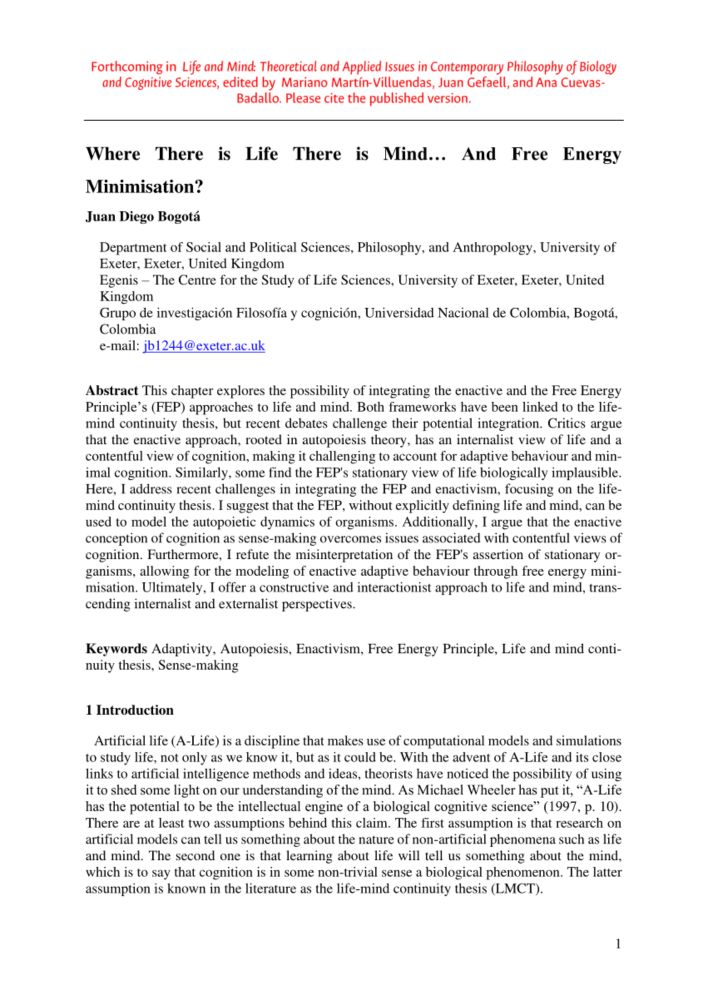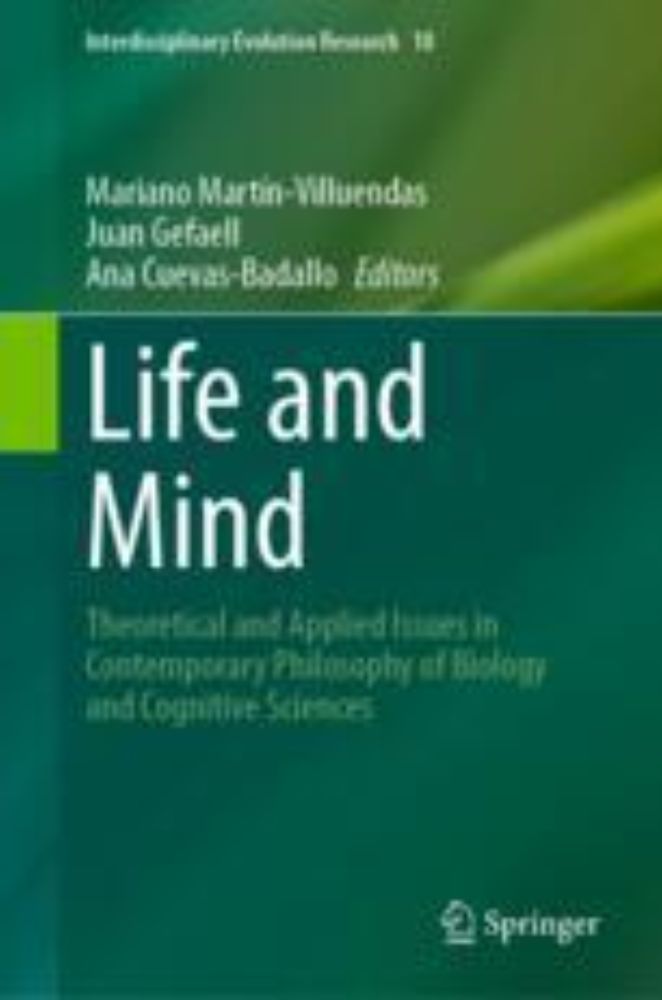Essentially, we provide an overview of social approaches to imagination within phenomenology and, by analysing D&D, we argue that there is room for a more socially robust conception where what is imagined is continuously co-constituted by multiple people and irreducible to an individual's act.
03.11.2025 13:16 — 👍 1 🔁 0 💬 0 📌 0
Here, we argue that D&D is a prime example of what we call 'co-constitutive imagination': cases where imagined phenomena emerge intersubjectively through ongoing reciprocal engagement, and where imaginative acts actively shape and are shaped by what is jointly imagined by a group of people.
03.11.2025 13:16 — 👍 0 🔁 0 💬 1 📌 0
Concerning non-egoic collective memory, I focus on how what we encounter in the social world may scaffold (narratively and normatively) how we explicitly remember the distant past, as well as how the shared past of a group can structure an implicit body memory that shapes our bodily selfhood.
20.10.2025 12:42 — 👍 0 🔁 0 💬 0 📌 0
Concerning egoic collective memory, I mostly focus on how an individual's episodic memory comes to be experienced in the first-person plural ('we' remember) while impacting that individual's social identity at a narrative level.
20.10.2025 12:42 — 👍 0 🔁 0 💬 1 📌 0
Building on phenomenological analyses of embodiment, episodic memory, and the intersubjective dimensions of perception, as well as on narrative approaches to social identity, and aspects of Bourdieu's practice theory, I analyse those two forms of collective memory.
20.10.2025 12:42 — 👍 0 🔁 0 💬 1 📌 0
I introduce a phenomenological distinction between egoic and non-egoic collective memories: collective memories of past events we lived through and can remember episodically, and collective memories of distant past events we didn't live through.
20.10.2025 12:42 — 👍 0 🔁 0 💬 1 📌 0
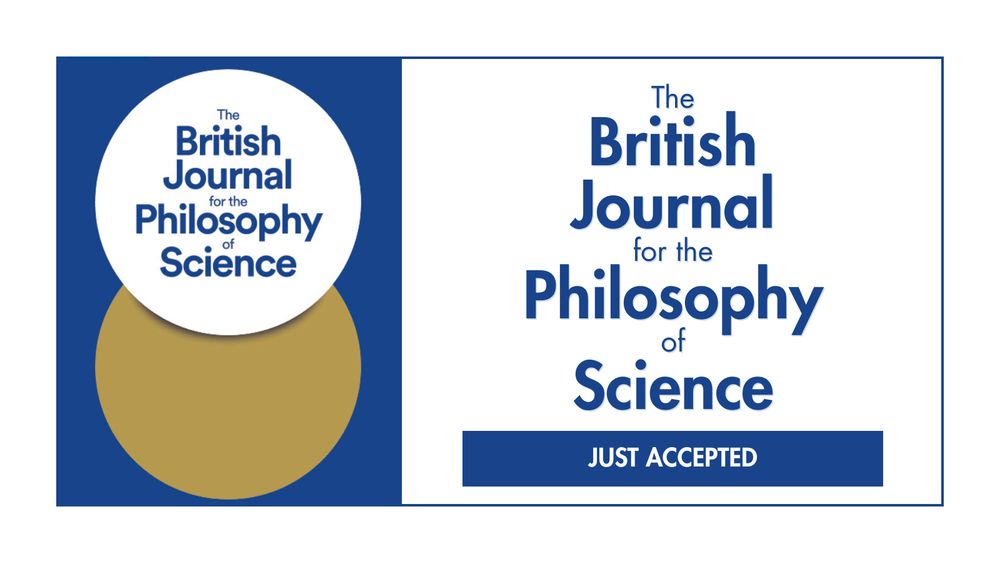
ABSTRACT. The early moderns surely didn’t defend an embodied, extended, embedded, or enacted conception of the mind, but we aim to show that this perspective can make sense of some of their practices; in particular, the epistemology of early modern experimentation. Focusing on Newton’s early optical work, we argue that the epistemic warrant he claims for his experimental results turns crucially on how the experimenter is situated towards gaining particular kinds of maker’s knowledge. Our account provides one answer to a long-standing puzzle regarding Newton’s method: his appeal to ‘compelled assent’ as an epistemic standard. We thus provide both a novel interpretation of Newton’s epistemology and a proof of concept towards applying tools from contemporary philosophy of mind to the history of science.
Just accepted:
Situated Cognition in Early Modern Experimentation: The Case of Compelled Assent
– Kirsten Walsh, Adrian Currie & Tom Roberts
Abstract in alt text or read the full paper here:
#philsci #philsky #hps
25.08.2025 09:15 — 👍 19 🔁 6 💬 1 📌 0
I just got an email notifying me that a paper I published 2 years ago has finally been published in an actual issue of Phenomenology of the Cognitive Sciences. So now, a paper I wrote years ago and was "Bogotá (2023)" is now technically my latest publication. I don't know how to feel about all this
21.08.2025 10:06 — 👍 1 🔁 0 💬 1 📌 0
Sad that I missed the labubu on Marx's grave in my attempt to keep away from social media for some time!
08.08.2025 15:51 — 👍 0 🔁 0 💬 0 📌 0
It was great to work on this project led by Lars Sandved-Smith, and alongside @hohwy.bsky.social, @jdkiverstein.bsky.social, and @antoinelutz.bsky.social.
08.08.2025 10:44 — 👍 1 🔁 0 💬 0 📌 0
The idea is to aim at a disciplined circulation between first and third-person perspectives, using the formalism of deep parametric active inference and the dual information geometry of Bayesian mechanics as a generative passage.
08.08.2025 10:44 — 👍 1 🔁 0 💬 1 📌 0
More specifically, we aim to provide a principled methodology for the scientific study of consciousness that, following phenomenological philosophy, focuses not on the contents of experience (i.e., what is experienced) but on its structures (i.e., how it is experienced).
08.08.2025 10:44 — 👍 1 🔁 0 💬 2 📌 0
I'm back from the dead to announce a paper that was published a couple of days ago and that I worked on. We're all very proud of this one. We elaborate on Varela’s neurophenomenology, proposing Bayesian mechanics as a generative passage between phenomenology and neurobiology.
08.08.2025 10:44 — 👍 10 🔁 3 💬 3 📌 0
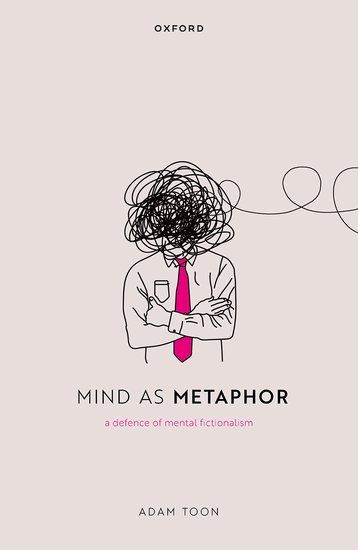
Out now! Mind as Metaphor (OUP, 2023) t.co/eBlYtDd5lY
08.01.2025 12:26 — 👍 62 🔁 10 💬 1 📌 3
Hi. DM me the details. 650 words sounds short for an article, so I’m a bit confused.
02.01.2025 21:03 — 👍 0 🔁 0 💬 1 📌 0
I love you Britain, but after having a proper taste of Finnish trains over the last four months I don’t think I want to travel in one of your trains ever again.
29.12.2024 10:56 — 👍 2 🔁 0 💬 0 📌 0
El listado está lejos de ser completo. Por favor hagan sugerencias para completarlo. No se sientan incómodos al sugerir su propio nombre, y disculpas de antemano por la omisión. Gracias!
go.bsky.app/4XmN14ihttps...
17.12.2024 15:27 — 👍 15 🔁 6 💬 2 📌 1
Spanglish es my language del thought.
10.12.2024 17:56 — 👍 30 🔁 3 💬 1 📌 0
Two reviews, one talk, one abstract, one revision, and my birthday on a single week. Never again.
10.12.2024 14:45 — 👍 1 🔁 0 💬 0 📌 0
What makes it a bit funnier is that my PhD thesis was also titled 'Life and Mind'. But in my defense, that wasn't the title I wanted. For bureaucratic reasons, I had to submit a 'preliminary title' in a rush for the university to contact potential examiners, and then they didn't let me change it :(
04.12.2024 11:24 — 👍 1 🔁 0 💬 0 📌 0
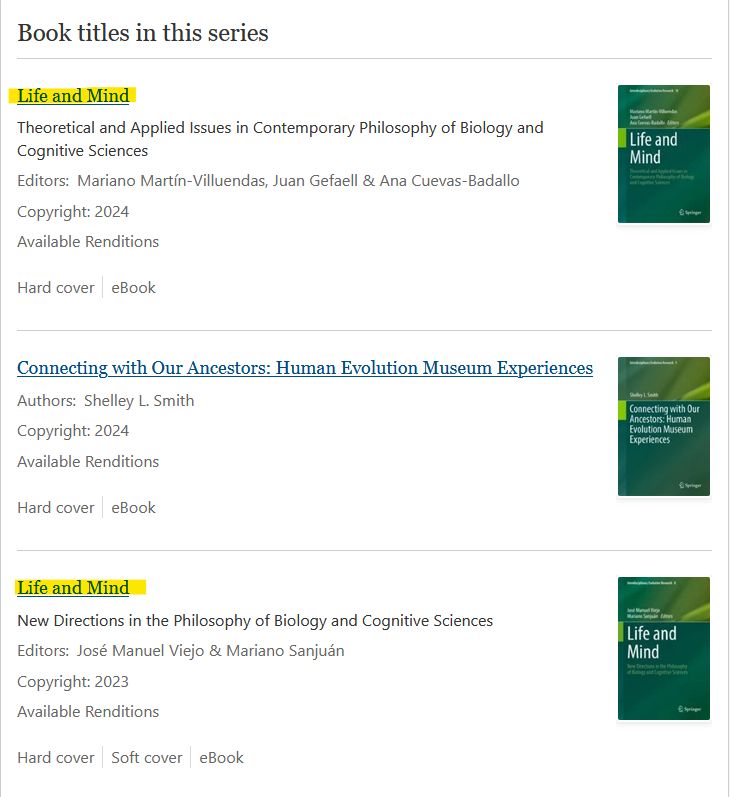
I find it hilarious that Springer allowed two books in the same series to have essentially the same title.
04.12.2024 11:24 — 👍 1 🔁 0 💬 1 📌 0
There is also a nice discussion about why I think that sense-making does not fall into the 'hard problem of content' that radical enactivists talk about. Cognition requires a non-representational form of content, and sense-making is just that.
04.12.2024 10:51 — 👍 0 🔁 0 💬 1 📌 0
Drawing from the latest literature, I show that even if the FEP by itself doesn't say much about life or mind specifically, it can be used to model the sense-making dynamics of organisms as described by the enactivists. The point is not to conflate operational, cognitive, and statistical boundaries.
04.12.2024 10:51 — 👍 0 🔁 0 💬 1 📌 0
It’s so heartbreaking when you’re reading a manuscript you are reviewing that at first shows a lot of promise, but then starts falling apart when the authors are developing their own proposal
02.12.2024 16:10 — 👍 1 🔁 0 💬 0 📌 0
LISTSERV 16.5 - PHILOS-L Archives
📣Calling all enactivists and critics!
Russell Meyer, Marilyn Stendera and myself are guest editing a special issue for Adaptive Behaviour called "Prospects for the science of Enaction" and are looking for contributions!
You can read more about our call here: listserv.liv.ac.uk/cgi-bin/wa?A...
02.12.2024 13:58 — 👍 7 🔁 3 💬 1 📌 2
A repository for ideas, questions, discoveries, and events in the philosophy of memory.
thememorypalacephil.substack.com
Led by @suttonprofessor.bsky.social and Deputy Director Professor Paula Reavey, the Centre @stir.ac.uk is a dynamic, collaborative, interdisciplinary research project advancing knowledge in relations between place and memory - placememory.net
Director, Centre for the Sciences of Place & Memory, Stirling Uni, Scotland. Skill, memory, embodied cognition, philosophy, cognitive history, cricket, music, collaboration, wayfinding. Leverhulme International Prof: johnsutton.net & placememory.net
Associate Professor in the School of Liberal Arts, University of Wollongong, Australia.
Current research: The function and implication of using idealized methods to model the mind/brain in computational neurosience. Ongoing: FEP, 4E, metaphysical musings
Account of the Editors of Neuroscience of Consciousness
https://academic.oup.com/nc
Athena Demertzi (co-EiC) @ademertzi
Thomas Andrillon (co-EiC) @thomasandrillon
Ben Kozuch (DepEd) @benjikozuch
Philosopher, phenomenologist, and cognitive scientist at
UC Merced. Interested in neural networks and dynamical systems theory. Builder of simbrain.net and husserl.net. Website: https://jeffyoshimi.net/
Philosopher of mind and of cognitive science at Purdue University. I (mostly) work on memory. I eat a lot of cookies. She/her. Views on my own.
Journal of Aesthetics and Phenomenology aims to encourage and promote research in aesthetics that draws inspiration from the phenomenological tradition as broadly understood
https://www.tandfonline.com/journals/rfap20/
Latest issue:
https://www.journals.uchicago.edu/toc/bjps/current
BJPS Review of Books:
https://www.thebsps.org/reviewofbooks/
BJPS Short Reads:
https://www.thebsps.org/short-reads/
Podcast:
https://podcasters.spotify.com/pod/show/bjps
philosophy PhD student: being-in-the-world, active inference, skilful coping, relevance
Pain Researcher 🇨🇦🇩🇰. Marie Skłodowska-Curie Actions (MSCA) Postdoctoral Fellow, University of Southern Denmark. Affiliate Member, McGill University. www.peterstilwell.com
Philosopher at the University of York and Ben-Gurion University of the Negev • Philosophy of Mind, Cognitive Science, Psychiatry, Phenomenology
Webpage: https://danielshkim.weebly.com/
PhD student in Philosophy at the School Of Liberal Arts - UoW working on skills. TTRPG and bass guitar enthusiast. he/him.
Assistant Professor at Duke University studying kids & culture. Director of the Mind & Culture Lab. Mom x3. Some people just want to watch the world learn.
dorsaamir.com | mindandculturelab.com
The British Society for Phenomenology promotes research and awareness in the field of phenomenology, accomplishing these aims through its journal, essay prize, impact agenda, podcast, and events
https://www.thebsp.org.uk
Postdoc at @kanskelab.bsky.social TU Dresden | social neuroscience | social interaction | active inference
Assistant Professor, Vrije Universiteit Amsterdam, Philosophy of Mind and Science, working on Pain, Suffering, Chronic Illnesses, Affective Scaffolding, Niche Construction, Disruptive Technologies






